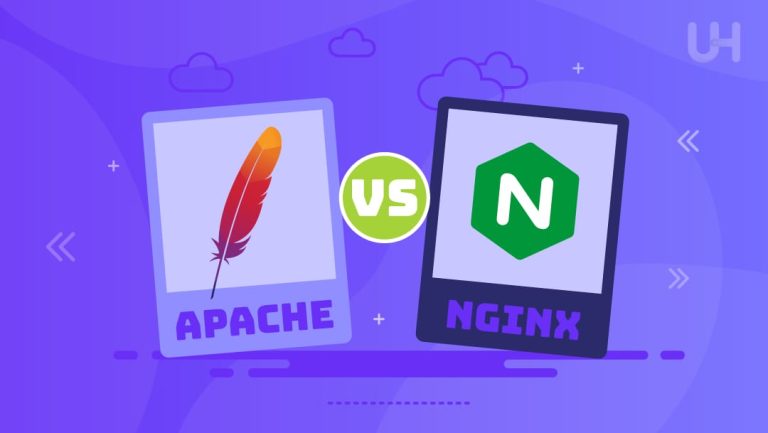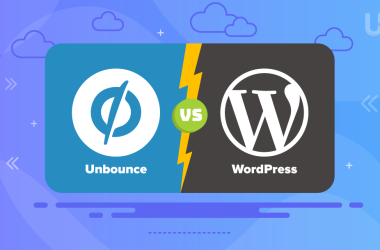Any discussion in web technology has to be preceded by clearly understanding the roles of a web server vs application server. Although these expressions are often used, they serve distinctly different purposes in developing and deploying a web-based application. Web servers handle static content delivery, like HTML and images; application servers bridge dynamic content and business logic. Knowing how these two kinds of servers differ is important for the optimization of web infrastructure and assurance that everything goes well.
In this article, we will explain the differences between web server and application server, focusing on their functionalities and key features so you can use your knowledge wisely while carrying out all types of web projects.
What is a Web Server?
The major role of any web server is to present static content to users. That simply means handling HTTP requests and responses, serving HTML, CSS, JavaScript files, images, and other attached static resources. However, a simple web server should load websites and present whatever is required onto the client’s browser.
Key Features of Web Server
- Handling HTTP Requests: Web servers handle all kinds of incoming HTTP requests from clients, namely browsers, and respond accordingly by returning their web pages or other resources.
- Static Content: They efficiently serve static content like HTML files, images, style sheets, and scripts.
- Load Balancing: The incoming traffic can be evenly distributed on several web servers to ensure high service and increased reliability.
- Caching: They often implement caching mechanisms that store frequently accessed resources to reduce server load and improve response times.
- Security: Web servers offer several options for security features with them, especially SSL/TLS encryption, authentication, and access control.
Some of the most well-known web servers are Apache HTTP Server, Nginx, and Microsoft Internet Information Services, often called IIS.
What is an Application Server?

While an application server is designed to serve dynamic content and applications, it also provides an environment for running server-side code, such as Java, .NET, PHP, or Python, and helps create and manage web applications.
Key Features of Application Server
- Dynamic Content Generation: Application servers process business logic based on user interactions and data.
- Middleware Services: They offer middleware services such as transaction management, messaging, and database connectivity.
- Application Hosting: This enables application servers to host and manage web applications so that they execute perfectly and at top speed.
- Session Management: They manage user sessions and state management, thereby playing an important role in applications that need user authentication and personalized experience.
- Integration: Application servers help integrate other enterprise systems and services through APIs and service-oriented architectures.
Some popular application servers are Apache Tomcat, JBoss Application Server, IBM WebSphere, and Oracle Weblogic.
Application Server vs Web Server: Key Differences
Understanding the differences between web server vs application server is essential for selecting the right technology stack for your project. Here are some basic differences:
Functionality
A web server is primarily there to handle HTTP requests and responses. It simply returns static content—HTML files, CSS, images—to the client’s browser. Performance and speed in serving static resources are optimized, guaranteeing that web pages load quickly with a fast server for high-performing websites. Web servers are designed to keep up with heavy traffic and manage every request efficiently with minimal processing.
In contrast, the application server focuses on producing dynamic content and processing business logic. It provides an environment where server-side scripts and applications may be executed, complex business logic can be applied to data, and dynamic web pages can be generated from user interactions and database data. Application servers form the backbones of web applications requiring authentication, personalized content, and real-time data processing.
Ready to Optimize Your Web Infrastructure?
Choosing the right server is crucial for your website’s performance and scalability. Whether you need a web server for static content or an application server for dynamic interactions, UltaHost has you covered. You can ensure your website runs smoothly and efficiently with reliable and affordable web hosting solutions.
Content Delivery
The web server serves the static resources directly to the client’s browser. Often, these are precompiled and stored in a server that can be sent directly when requested. Doing so minimizes processing time and maximizes delivery speed. Web servers are very good at caching static content, enhancing performance by reducing the need to access the same resources repeatedly. Additionally, using a Content Delivery Network (CDN) can further optimize delivery speed by distributing content across multiple geographically dispersed servers, ensuring faster access for users.
Application servers dynamically compose content on the fly. The application server processes any request for a dynamic page. It executes the business logic necessary to meet the request, probably interacting with databases and generating the HTML sent to the client. This makes for highly personalized and interactive Internet/Web applications. However, compared to serving static content, this involves higher processing overhead.
Performance
Web servers optimize speed and efficiency for delivering static content. They can serve a large number of requests quickly with no significant delay. In that respect, the lightness of web servers helps perform large amounts of traffic without consuming many resources. Coupled with that, various techniques like caching and load balancing help distribute the load, lightening the strain on the server and leading to improved performance.
For application servers, processing power and competence are more important than raw speed. They deal with complex business logic, user sessions, or dynamic content generation—everything computationally intensive. While they may not be as fast as a web server in serving static pages, application servers play a significant role in most Web applications that involve real-time data processing and user interaction. Methods aimed at enhancing performance usually concern efficient code execution, database optimization, and load management for application servers.
Middleware Services
Web servers provide very few middleware services. Most of the time, they are just simple web servers that serve the request in terms of HTTP and send-back in terms of static content. Very few of them provide basic functionalities like SSL-certified encryption and authentication, which is pretty basic compared to general metadata-based services provided by decent middleware. These make them easy but efficient for relatively straightforward content delivery with few integrations or services.
Application servers offer an enriched set of middleware services supporting complex enterprise applications. This includes transaction management, messaging security, and connectivity to several databases and other external systems. With such middleware services, application servers can diversify the smooth communication among different parts of an application while assuring its data consistency, reliability, and scalability. This makes an application server principal in enterprise environments with sophisticated application requirements.
Integration
Web servers primarily focus on content delivery and do not offer extensive integration capabilities. They deal with HTTP requests and serve static files with little interaction with other systems. Given the configuration, they might work with Application Servers and many other back-end systems. However, their role in integration remains limited only to request and response forwarding.
Application servers support this with the necessary infrastructure to glue Web applications to databases, external services, and enterprise systems. They facilitate smooth data interchange and interoperation by supporting various protocols and standards. Providing for complex workflow, transaction, and messaging systems, Application Servers ensure that different components of an application talk to each other properly. This integration feature is critical to implementing a scalable, reliable, and maintainable enterprise application.
Combining Web Servers and Application Servers
In many scenarios, web servers and application servers work together to leverage their respective strengths. A common setup involves a web server handling static content and acting as a reverse proxy to forward dynamic requests to an application server. This architecture improves performance, scalability, and security. For instance, if you’re developing applications that need specific hosting environments, such as an Android VPS, this combination ensures efficient handling of static and dynamic content, optimizing your web application’s overall performance and reliability.
Conclusion
Web server or application server are two major players in the web development cycle, catering to specific needs. One is good at serving static content efficiently, and the other handles dynamic content with business logic. Knowing the differences between web server vs application server will help you make wise decisions while developing robust, scalable web applications. You can use both for better performance, scalability, and user experience.
Choosing the right server is essential for robust and scalable web solutions. Explore UltaHost VDS Hosting to find powerful hosting options tailored to meet your application’s demands and ensure optimal performance.
FAQ
What are the main differences between a web server and an application server?
A web server serves static content like HTML and images, while an application server handles business logic and dynamic content. Web servers focus on speed for static resources, and application servers manage real-time interactions.
Can I use both a web server and an application server together?
Yes, combining both improves performance and security. A web server handles static content and forwards dynamic requests to an application server.
What are some popular web servers and application servers?
Popular web servers include Apache HTTP Server, Nginx, and Microsoft IIS. Popular application servers include Apache Tomcat, JBoss, IBM WebSphere, and Oracle WebLogic.
When should I choose a web server over an application server?
Choose a web server to quickly deliver static content, like hosting static websites or using CDNs. Ideal for simple, high-traffic sites.
What are middleware services in application servers?
Middleware services include transaction management and messaging. They ensure seamless communication and data consistency in enterprise applications.












